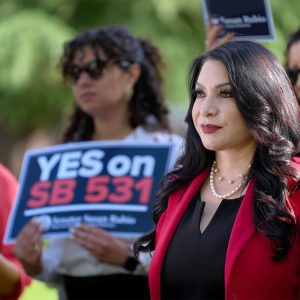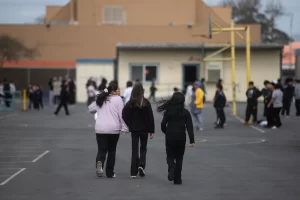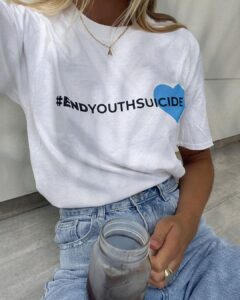
Join parents, teachers, and advocates in urging lawmakers to pass SB 531 and address the youth mental health crisis now.
In a deeply disappointing move for advocates of student wellness, Senate Bill 531 (SB 531), authored by Senator Susan Rubio (D–Baldwin Park), was blocked this week by the California Senate Education Committee. The bill aimed to mandate age-appropriate mental health education for all students in grades 1 through 12—an urgent measure in light of the ongoing mental health crisis affecting California’s youth.
Senator Rubio, a former teacher and vice principal with 20 years of classroom experience, introduced SB 531 to fill a glaring gap in the state’s education system: the lack of structured, early mental health education. While schools routinely teach fire safety, nutrition, and physical fitness, few provide students with the tools to understand emotional wellbeing or recognize signs of depression, anxiety, or trauma.
“We run fire drills and lockdown drills, but we still won’t teach students how to talk about depression, anxiety, or trauma—things that quietly harm thousands of kids every day,” said Rubio. “This vote was a missed opportunity to meet students where they are and address the real threats they face.”
Mental health issues among youth have soared in recent years. According to the U.S. Surgeon General, emergency room visits for suspected suicide attempts among teenage girls rose by over 50% in recent years. In California, nearly one in three high school students report feeling persistently sad or hopeless. Yet access to school-based mental health services remains uneven, especially in under-resourced communities. Most school districts lack sufficient counselors or psychologists, and teachers are often the first—and only—adults to notice when something is wrong.
SB 531 was designed to change that. The bill proposed integrating age-appropriate mental health instruction across grade levels, beginning with basic emotional literacy in early elementary years and expanding to include more complex topics like coping skills, identifying mental illness, and seeking support during adolescence. The goal was to normalize these conversations in the same way schools have long addressed physical health and safety.
“I had an 8-year-old girl in my classroom who threatened to kill me every single day,” Rubio shared. “She wasn’t a bad kid—she was in crisis. Her mother had to lock her in a room at night just to keep her family safe. But no one gave that child the words, the tools, or the support to talk about what she was experiencing. SB 531 would have done that—for her and for so many others.”
Blocked in Committee: What Happens Now?
Despite its strong rationale and widespread support among teachers and mental health professionals, SB 531 failed to secure enough votes in the Senate Education Committee. Rubio, the only former K–12 classroom teacher on the panel, voiced frustration that a committee charged with prioritizing student wellbeing couldn't see the urgency.
“It’s unfortunate and frustrating that a panel of lawmakers tasked with overseeing education couldn’t see what every teacher sees: our kids are in crisis,” Rubio said.
The bill is not officially “dead” but stalled. Like many bills that don’t pass out of committee, SB 531 could potentially be reconsidered later in the session, amended, or reintroduced next year. Senator Rubio has expressed her intent to keep fighting for student mental health, suggesting the issue is far from settled.
Who's on the Committee That Blocked It?
The Senate Education Committee for the 2025–26 legislative session includes:
- Senator Sasha Renée Pérez (D–Alhambra) – Chair
- Senator Rosilicie Ochoa Bogh (R–Yucaipa) – Vice Chair
- Senator Christopher Cabaldon (D–Yolo)
- Senator Steven Choi (R–Irvine)
- Senator Dave Cortese (D–San Jose)
- Senator Lena A. Gonzalez (D–Long Beach)
- Senator Eloise Gómez Reyes (D–San Bernardino)
Senator Rubio has vowed to continue working alongside educators, parents, and health professionals to prioritize student mental health in California policy. “This bill was about giving kids the tools they need to survive and thrive,” she said. “I’m not done fighting.”
Parriva has contacted some of the committee members to gain understanding of why this bill got blocked and will porvide an update as soon as we hear back.


ICE Raids and Latino Students: How Fear Is Reshaping Mental Health in Los Angeles Schools


Susan Rubio: Mental Health – The Fight of a Teacher Turned Senator


Trump Cuts School Mental Health Grants—California and L.A. Students Are Among the Hardest Hit


Data Reveals Soaring Anxiety and Depression in kids Ages 6-17


Mental Health: Significant increase in youth who want to commit suicide

 Parriva's Team
Parriva's Team
Protect Maternity Care in Los Angeles County Before More Families Are Put at Risk
LA County Proposes Deep Cuts to Homeless Programs in 2026
IMMIGRATION
Dodgers Choose Trump — and Betray Los Angeles
POLITICS
Why Many Latino Renters Will be Watching Nithya Raman’s Challenge to Karen Bass Closely
Dodgers Choose Trump — and Betray Los Angeles
The Battle for CD1 Begins with Early Fundraising Numbers
LA County Approves $843 Million Homelessness Budget—With Deep Cuts That Alarm Advocates